I told all my friends I’d be fine.
Day one, I’m a puddle.
I’m alone in Manhattan, buried under a pristine white duvet cover looking out at the city lights cast over the Hudson River. Court ended hours ago. The Met Gala has just begun. The news cycle has shifted from covering Sean “Diddy” Combs’ jury selection to Sidney Sweeney’s cleavage.
Yet, I’m still stuck in the past. Frozen in an uncomfortable moment from this afternoon. The brief moment, that for the first time ever, I felt bad for Diddy.
You’d think after a year of covering 40 pending lawsuits, 100s of allegations and reading through thousands of “No Diddy” comments online, my empathy for this man would be shot.
But apparently, all it took was Diddy asking a judge for a bathroom break to break me.
“I’m sorry, your honor, I’m nervous,” Diddy said to Judge Arun Subramanian, in front of a packed room of 150 potential jurors. His first request was denied.
The judge, whose voice echoed like a jovial Ben Shapiro, granted the hip-hop star two minutes away from a courtroom thick with tension—cutthroat attorneys circling the historical building like vultures, and 150 antsy jurors waiting to hear their names called.
I imagined Diddy, styled in a dark blue sweater and white collared shirt, rushing to the bathroom and collapsing his hands over the porcelain sink. He’d look up and see the sketches hadn’t lied. His beard really was that grey. His cheeks that hollow. The SHU had done its job.
One minute remained. Shaggy’s song, “Angel,” sounded off in his head.
“Life is one big party when you’re still young, but who’s gonna have your back when it’s all done?” Apparently nobody.
Where is Jay-Z?
Usher?
The Kardashian sisters?
Everyone wanted to be around 25, 35 and 45-year-old Diddy. But 55-year-old Diddy?
“Diddy who?” Hollywood pretends to forget.
But Getty Images live forever.
Outside the stall, the jury started assembling for the season finale of Making the Band: The Verdict—Guilty or Not Guilty.
Diddy do it? That was for the twelve ordinary citizens turned gatekeepers to decide- their civic duty now wielding more power over his fate than Andre Harrell, L.A. Reid, or Clive Davis ever were.
After Thursday, the 12 final jurors will sit through four victims’ testimonies and decide if Mr. Combs should finally walk free, or rot with the last standing remains of Sean John, soundtracks and Cîroc.
Suddenly, I, too, felt a pit in my stomach.
I retrieved my phone from security and texted my boyfriend: “I feel bad for Diddy.”
He replied: “Don’t turn into one of those court reporters who fall in love with the criminals and then sends them letters in prison.”
As if. I texted my friends in a group chat instead. .
“I feel bad for Diddy…kinda. He said he’s nervous,” I told them, describing this moment that shook me in court.
“Of course,” a friend replied. “But don’t forget he’s hired hits on people to build his empire. He’s lucky he' got this far,” alleging a popular theory floating around online.
I decided to confess even louder on Instagram. The emotion felt inappropriate, but was a feeling I needed to explore.
Within minutes, my DMs exploded. Some applauded me for having empathy. Others said I was falling for an “obvious manipulation tactic.” One woman was angry and said I should have kept this to myself! But the majority? They said they oddly felt the same way and weren’t sure why.
Maybe Google would know. I searched, “why do I feel bad for bad people?”
The first answer: “because u know the pain of being hurt & they don’t.”
The top response on Quora followed “because you have a HEART…Life is meant to make or break you, we choose. I choose never to be like most. I choose LOVE.”
LOVE? Ironic, considering “Love,” was Diddy’s moniker at the time of his arrest, a rebrand a journalist at the Independent UK claimed was a “psychopath move.”
In nearly every article I wrote for my “The Diddy Files” series last year, I, too, branded the star as a sociopath, an abusive psychopath unworthy of an ounce of sympathy.
Yet, today, for a brief moment in that chilly Manhattan courtroom, I felt different.
I didn’t see “Love.”
I didn’t see “Diddy.”
I didn’t see “P.D.” or whatever other 234234 nicknames Judge Subramanian mumbled to the jurors.
In that fleeting moment, I saw Puff Daddy— my favorite male celebrity in 4th grade, whose poster was plastered on my bedroom wall, a prize I won after popping three balloons at the local carnival.
In that moment, I heard Puff Daddy-singing my all-time favorite karaoke song, “I’ll Be Missing You.”
“Every single day, every time I praaay—”
I could never sing the high notes. I sang along anyways.
Diddy’s 1998 Teen People Cover
The night before my first day of court, I asked my audience what they thought Diddy would wear. A few guessed pinstripes. Most replied “hopefully orange”—not fashion orange, Orange is the New Black orange.
After court today, I searched online for an old magazine I vaguely remembered that used to sit on my dresser in the ‘90s. It was an issue of Teen People from 1998. Puff Daddy was on the cover, front and center, in a sporty orange Nike shirt. But what was this? What was this headline overlapping his right knee?
“I WAS RAPED AT THE PROM: A Victim’s Story.”
Did I read that correctly?
The word RAPED, in bold orange font, was stacked casually below Leo DiCaprio’s heartthrob headshot and a shallow cover line called: “PERFECT PARTY HAIR & MAKEUP.”
The editors at Teen People, for some reason, approved to run a graphic sexual assault story in their magazine. The graphic designer stamped a rape headline onto the middle of the cover like it was a back-to-school ad for JC Penney. Rape sandwiched between celebrities and mascara tips. But make it ORANGE!
It’s no wonder society has become numb to hearing even the most graphic sexual assault stories. Teen People, a popular magazine marketed to tweens, was casually promoting rape on their glossy covers.
I remember this magazine glamorizing celebrities, shoes and music. But not trauma.
The story was listed under “the real world” section of the magazine.
“A California town is torn apart by a prom-night rape scandal. Page 46 for the scoop.
Rape branded as “scandal.”
Here we are, 30 years-later, and the federal courtroom was filled today with reporters and jurors competing for a front-row seat at the latest, hottest, “scandal”
in town: The United States of America Vs. Sean “Diddy” Combs.
The judge announced that this trial could last up to ten weeks. He apologized to the potential jurors for any inconvenience this may cause. Reporters- both mainstream anchors and independent writers- discussed the likelihood of staying for the entirety of the trial.
“My editor said I don’t have to be here every day,” one freelance reporter said to me. “But he wants to make sure I’m here for Cassie. That’s where the $$ is.”
Cassie Ventura—listed as “Victim 1” in the indictment—is the only celebrity named in the case. Everyone expects her court appearances to draw the biggest crowds. Media outlets are already bracing for chaos, hiring LINEDUDES, a line-sitting service, to stake out courtroom spots before dawn.
These line-sitters that used to cost $25/hour now cost $32/hour, becoming a luxury only the most lucrative news outlets can afford. This morning, The New York Times hired one of these cozy early birds to secure a place in line for their reporter, who strolled up to the court house well-rested moments before doors officially opened to the press and public.
The camera crews lined up outside waiting for members of the Combs’ family to arrive, were captivated by a young woman named Gigi, camped out in what looked like a portable spray tan tent. She became the star of the sidewalk, interviewed by many reporters intrigued by her ability to make NY’s dirty concrete look as comfortable as a Purple mattress.
TMZ ran a feature story on LINEDUDES after their own team became one of many victims to the service. Since there were over a hundred jurors on site, security only opened up one row of seating for press. Since it was first come, first serve, the first ten seats were given to the first ten in line, mostly mainstream reporters who splurged on line-sitters. The rest of the journalists, who actually got up early, were pushed to an overflow room with a broken television. You can imagine they were thrilled.
Numb Society
Tonight, I reached out to a friend, who was a victim of industry abuse at a young age, to help me make sense of why I felt bad for Diddy.
“Don’t fall for the programming,” she said, reminding me that we’ve been programmed to sympathize with familiar celebrities instead of unknown victims.
We started talking about how as a society we’ve been numbed to tragedy. We fall asleep to horror films. We make “No Diddy” jokes. Our favorite comedians joke about rape. Netflix has made it easy to root for the villain, especially when the serial killers cast are as hot as Penn Badgley.
Since this is my first trial, I wasn’t sure what to expect. The night before, I turned on the #2 trending show on Netflix, YOU, and watched Badgley, the infamous serial killer who plays “Joe Goldberg”, strangle an old man and slash a blonde’s face with a knife before sounding off to sleep. In the 90s, scenes like this terrified me. I screamed during Scream. Nowadays, they help me fall asleep.
I headed to court at 5 AM with a bit of anxiety, not from the show, but from my friend, writer Brianna Logan, who will be joining me on Friday, who has been warning me for months that sexual assault trials are hard on the soul.
The journalists near me seemed relaxed, unbothered by the testimonies she warned of.
“I heard an ugly rumor,” an independent reporter said to me dramatically at 8:44 AM.
“What did you hear?” I asked.
“I heard we might be here today until 5:30 PM,” he said.
It became clear he wasn’t too invested in the case. This was just another job for him.
Pick-Me Jurors
For some reporters, photographers, and even potential jurors though, this felt like it was more than a job—it was a major opportunity. A chance to attach their name to what could become the biggest celebrity criminal trial of our time.
I kept wondering: How are they going to find twelve jurors who don’t know who Diddy is? Would they have to head to Pennsylvania? Recruit the Amish?
One of the first jurors questioned admitted that his sister was once beaten by her husband—but insisted it wouldn’t affect his judgment. That struck me as off. It seemed like, he, and a few others, were eager to be chosen. Pick me! Pick me! Love me Diddy! Love me Love!
Pick-me jurors.
Even Diddy looked aware of the stakes. When he said, “I’m nervous today,” I truly believe it wasn’t performative. It was raw. Desperate. Real. Even readers who read this bit online, said they felt chills reading it. This wasn’t sympathy for a monster. It was recognizing the man inside the monster, was fully aware that this is his last shot at freedom rested in the hands of strangers who pretended they never heard of him before.
The quote practically wrote itself. TMZ ran with it:
Diddy Trial: “I'M FEELING THE NERVES ... Seeks Relief During First Day in Court.”
Even though I’ve liked most TMZ journalists I’ve met, it’s hard not to roll my eyes when their red logo pops up. From Britney to Bieber, they’ve been consistent in breaking tragedy before the dust settles. In October, they finally caught international heat for publishing cropped photos of Liam Payne’s dead body. For the world, it was a moral line crossed. For TMZ? Just another Tuesday.
And that’s what scares me most for the victims who will soon take the stand—people who’ve already lost years to trauma and now stand to lose more, as their stories become public spectacle. Media outlets have their tripods ready to monetize their pain.
One wrong answer under oath, stammered under cross-examination by one of Diddy’s top-dollar defense attorneys, could erase a victim’s truth in seconds.
Maybe that’s why so many victims stay silent. Maybe that gut-punch empathy I felt today, rooted in nostalgia and cultural memory, is exactly why it’s so hard to speak out when their predator is rich and famous. People naturally feel connected to celebrities they’re familiar with. And some celebrities have cult-like fans turned diehard defenders. The villain in one story is often the hero in another.
Guilty Beyond Reasonable Doubt
Today, Judge Subramanian repeated over and over again: “You do realize, in order for him to be guilty, you have to prove it beyond a reasonable doubt.”
Beyond. Reasonable. Doubt.
The more he said it, the more it felt like conviction was a long shot. Diddy pled not guilty to all five federal charges, and for the first time, I started to think maybe Kanye was right. Maybe Diddy will walk.
Even with nearly 40 civil lawsuits from both men and women alleging predatory behavior spanning decades, the courtroom suddenly felt like a place where truth might not matter as much as strategy and technicalities.
“May the best legal team win,” vibes strong.
A US Weekly reporter, Antonio Fermes, reminded me though, that this isn’t Diddy’s first time getting accused of wrongdoing during his career.
“Time and time again, he’d do something and and the culture would defend him, Fermes said.
“Now, it’s a different time.”
He’s right. There’s not too many Diddy defenders out there these days. Why?
Where are Diddy’s Fans?
Unlike Ye, Diddy doesn’t have a fanatical base of supporters who defend everything he does because once upon a time “he made Graduation.” Nobody showed up at the courthouse today for Diddy. Not a single protestor waved a “Free Puff” poster in the air. Just one man—Charlucci, Diddy’s alleged godbrother—roamed around the court house in a “Free Puff” hat.
Compare that to the Luigi trial just weeks ago, where an ABC reporter said enthused fans lined up in packs hours before court was even in session to show their support.
Diddy doesn’t have that energy carrying him right now. Especially not after the Cassie video dropped last spring—the hallway surveillance that CNN released. That video changed public perception. It shifted the narrative. Diddy’s loudest defenders slowly turned their volume down.
Kanye West: Celebrity Named on Day One of Trial
Well. Except from Kanye.
For months now, Ye’s been rallying loudly behind Diddy, calling Cassie Ventura an “extorter” and accusing her of profiting from Diddy’s downfall. He even teamed up with Diddy’s son, King Combs, and made “Free Diddy” shirts and sold them on YEEZY, claiming he’d split profits with his “BROTHER PUFF.” He took it a step further and sold the same hoodie Cassie wore in the hallway assault video, naming it “THE LOVE HOODIE,” as if it was some kind of sick joke, exploiting and profiting off Cassie’s trauma. And to no surprise, his fans still bought it.
Today, during jury selection, the name “Kanye West” was said out loud. It’s unclear what that means for this trial, but speculation’s already swirling. Kid Cudi was also named, but many assume only because Diddy allegedly blew up his car in 2011.
Just weeks ago, Ye made headlines for saying that as a kid, he found dirty magazines in his mother’s closet—and that it led him to perform oral sex on his six-year-old cousin until the cousin turned fourteen. The internet was split: predator or truth-teller? Pervert or product of a sick industry?
Alleged Childhood Parallels Between Ye and Diddy
Even though many people say “No Diddy,” online, there is a sector of the internet who believes Diddy is a victim of abuse, himself.
“It’s hard watching him up there all alone. He might just be the fall guy,” is a theory I see online often, especially in the comment section of popular music blogs.
“Diddy was abused, too. In Harlem. As a kid,” I overheard someone say in the lobby.
That idea—Diddy as victim turned villain—is explored in the new Peacock documentary The Making of a Bad Boy. One of his friends, Patterson, claims Diddy’s mother used to throw wild parties in their New York apartment. He says Diddy was exposed to adult behavior way too young. That’s how it started.
“I don’t know the answer to why,” Patterson says. “But I believe it all goes back to childhood.”
Back in 1999, Diddy told Vibe he was watching porn by age twelve. It echoed what Ye just admitted about finding dirty magazines in his mother’s closet.
I remember wondering then if Ye made that confession because he knew he might be dragged into this trial. And now, on Day One, his name is already in the record.
An indie reporter leaned over to me and asked, “Did you see what Kanye posted on X?” If only he knew—I run “kanyesposts.”
“He’s blaming his mother for everything lately it seems!” the reporter said, feeling sorry for Ye’s mother, the late Donda West, who’s been the subject of many of Ye’s wild tweets in 2025.
The symmetry hit: Diddy’s friend blaming Janice. Kanye blaming Donda. Both pointing fingers at their childhood homes, their mothers, their earliest exposures to pornography.
Others say these men are just the latest casualties of an industry built on grooming, trauma, and control.
Still, Diddy’s lawyers haven’t brought up his childhood. They haven't used MK Ultra as a defense. Not yet. Today they talked about bringing in a doctor to testify about the alleged drugs he used, to possibly explain away erratic behavior. But no mention of childhood trauma. No hint of industry abuse.
Real Victims. Real Pain. Aaahh!! Real Monsters.
It would be so much easier to cover this celebrity trial if it were just about tax fraud. Like Shakira. Nobody gets hurt when it’s just a foreign government losing money.
But this isn’t that.
This is about real victims. Real pain. Real people. And a courtroom packed with lawyers, reporters and paparazzi here to cash in.
“Innocent until proven guilty.” That’s what the judge says. That’s what the law demands.
But the internet wants me to cover this trial as if he’s guilty until proven innocent.
Diddy might be a monster. But monsters are still human.
Whether he’s innocent or guilty, isn’t for me to decide, but instead, the decision for the twelve jurors left standing after two more days of jury selection.
Hopefully, Diddy doesn’t need another bathroom break or some of my followers are going to think I’m the AAHHH!!! REAL MONSTER.

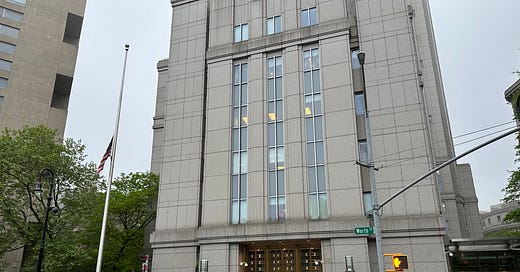



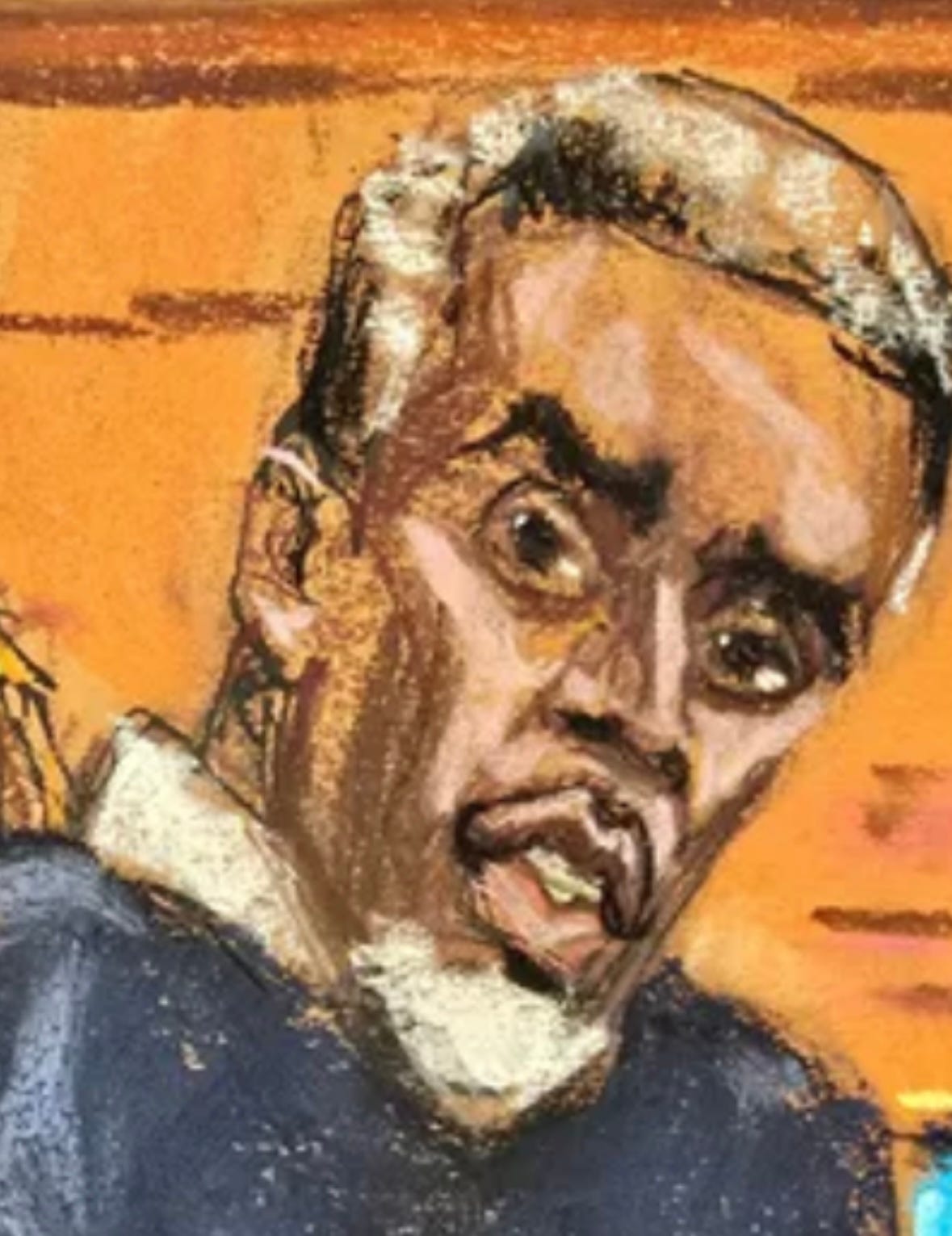

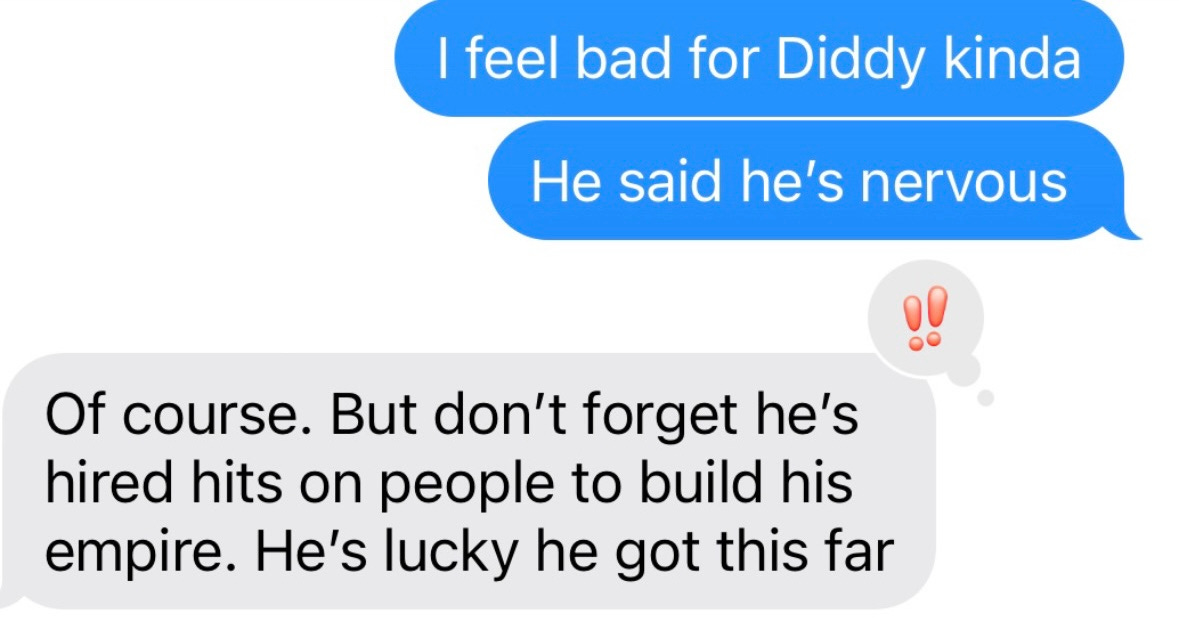



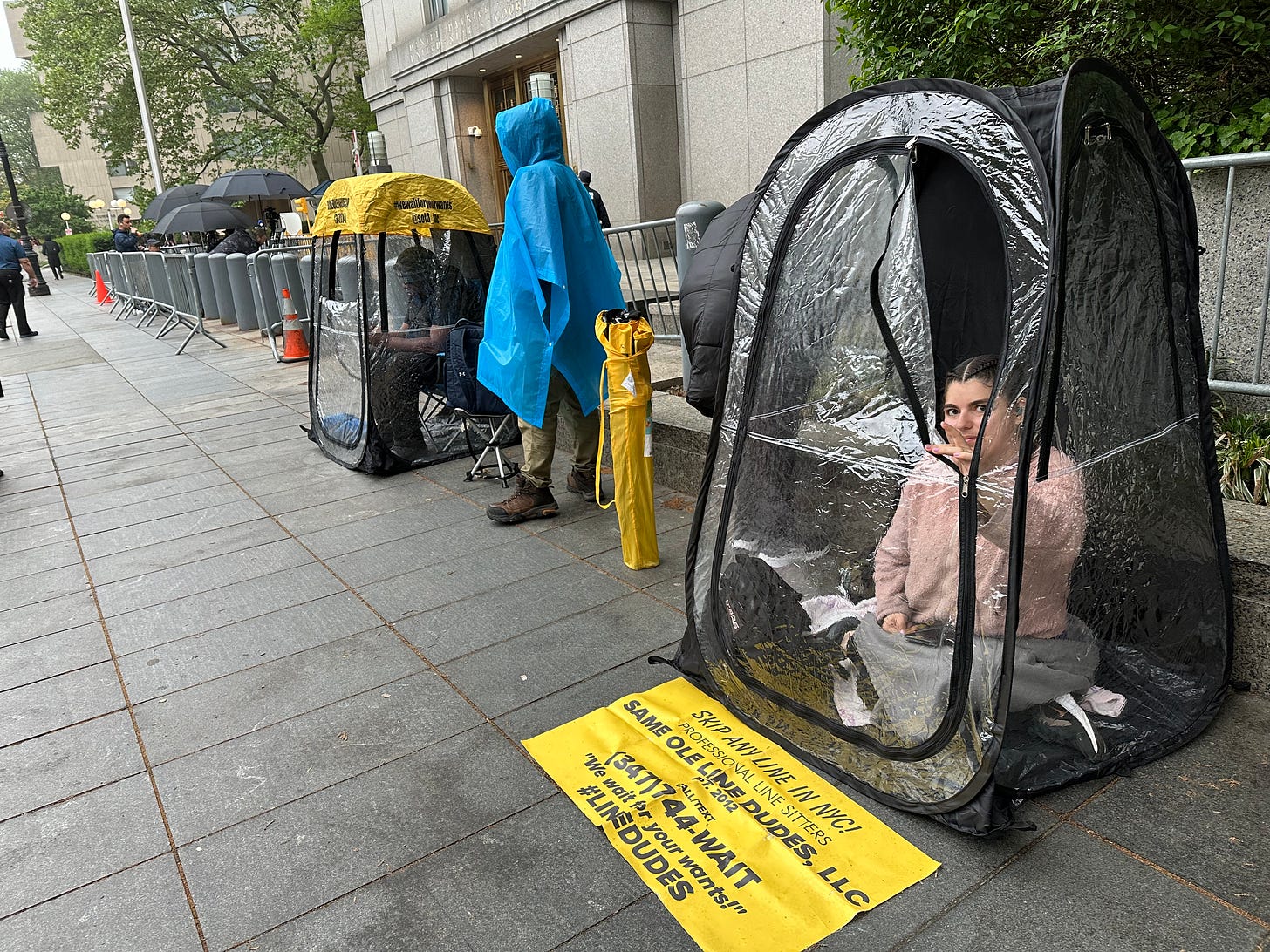
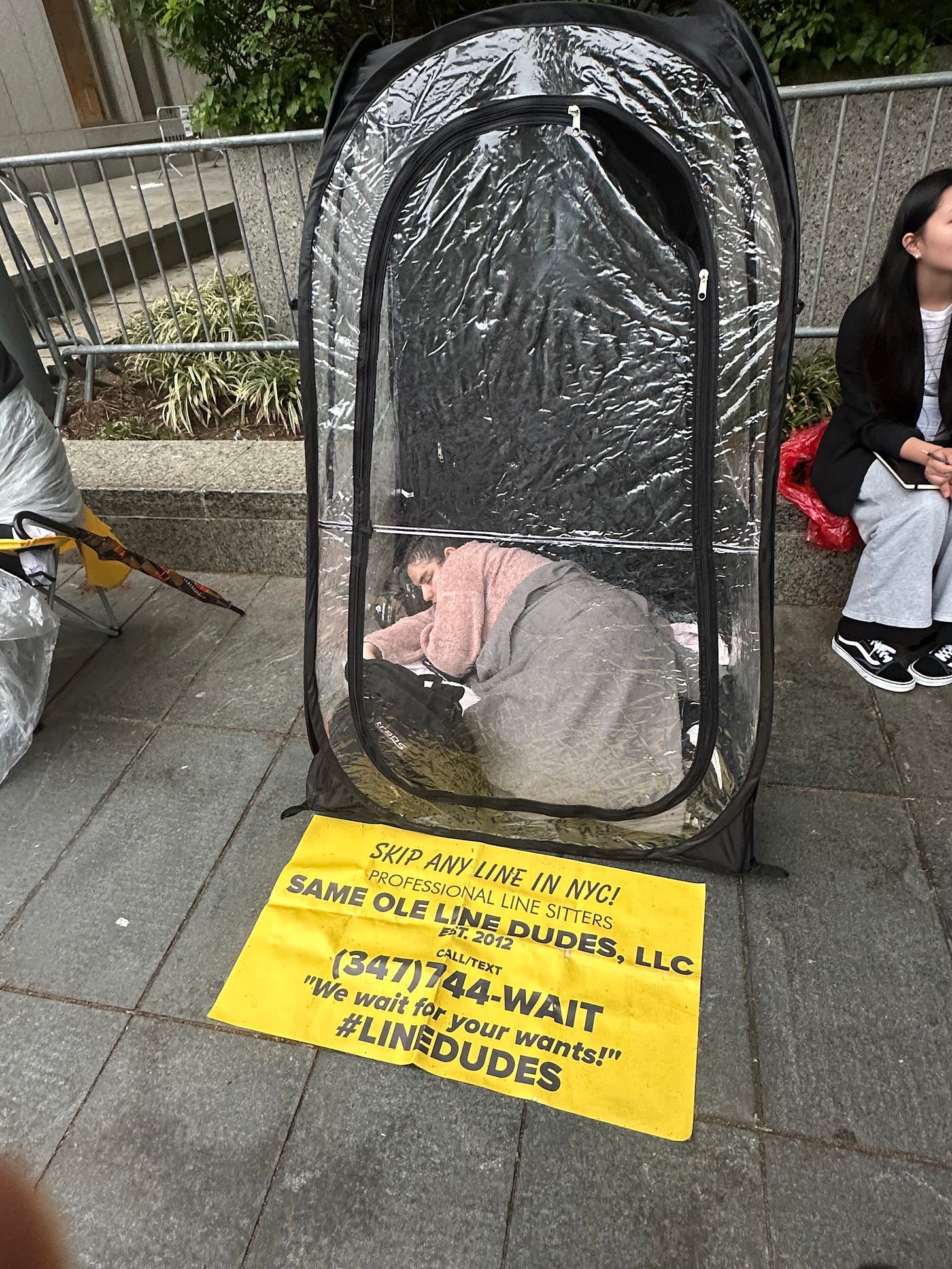
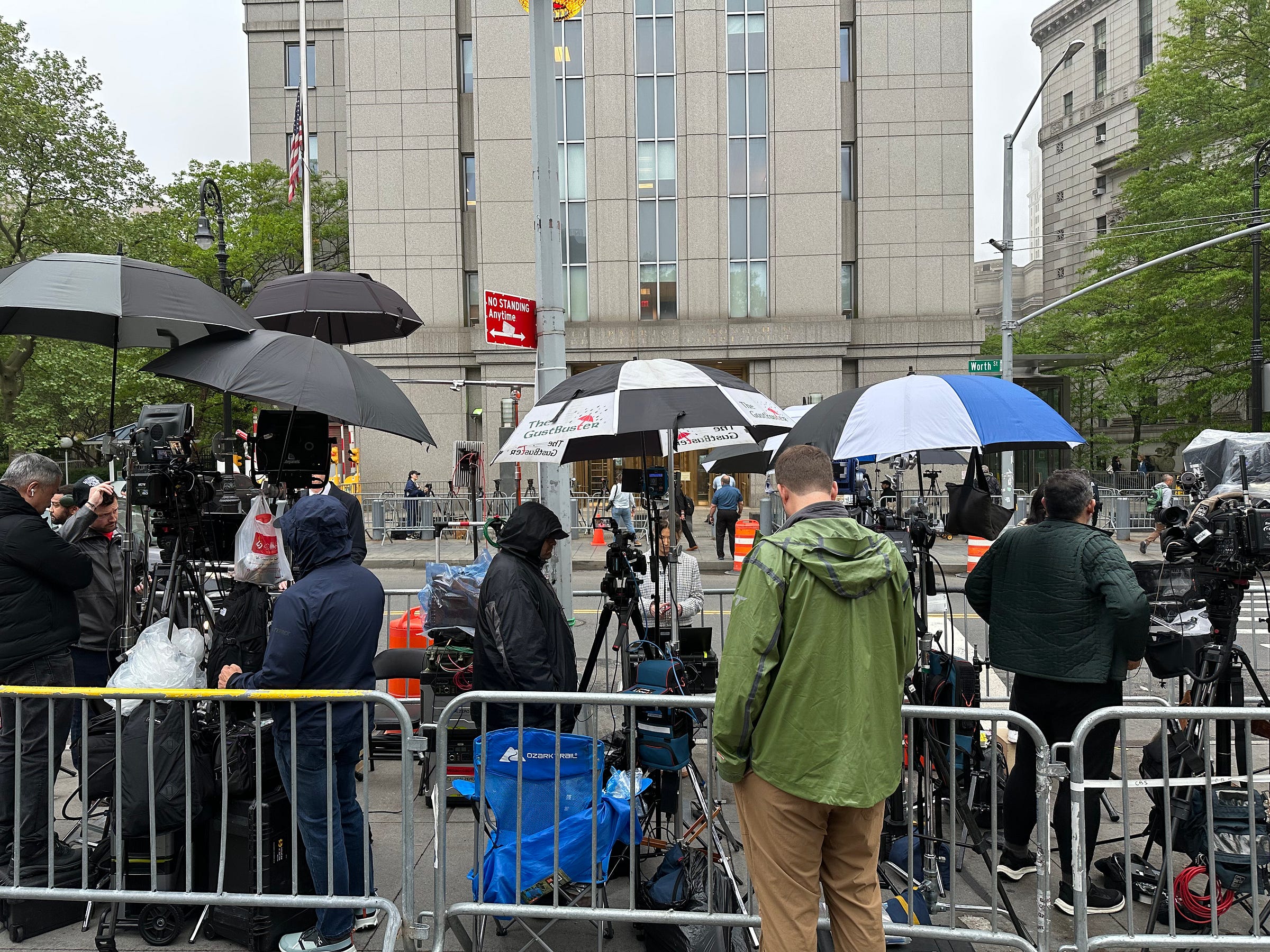



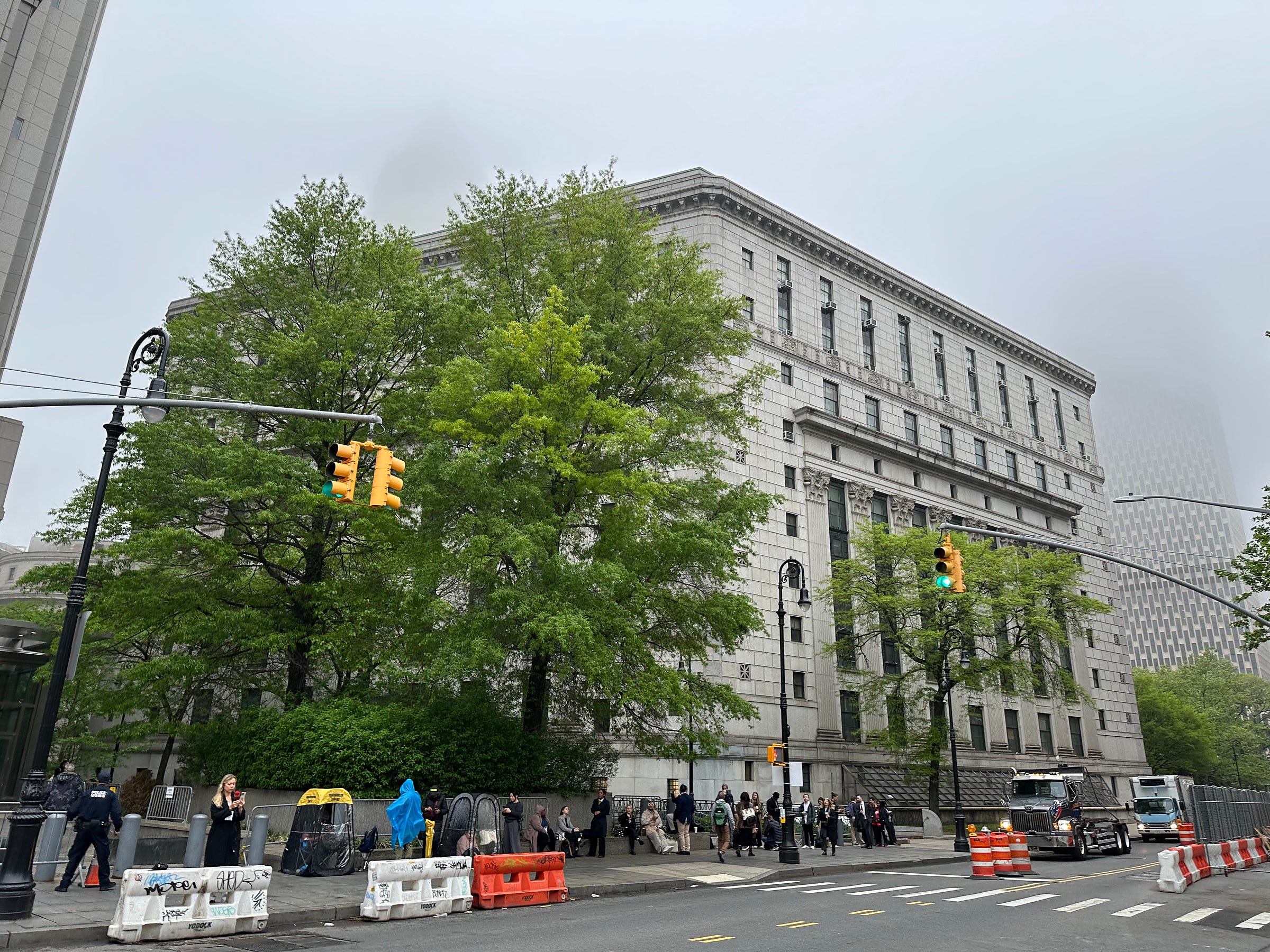




Your writing is terrific. Realizing I’ve enjoyed your voice for a while now but didn’t know it was coming from you on the other outlet.
This is excellent!
“Diddy do it” is an amazing line.
I also have compassion for anything that needs to go pee and can’t.
Honestly though, broken people don’t become broken on their own. It’s fairly easy to assume that he was a victim growing up and that’s how he was able to write off this behavior. It’s by no means an excuse because plenty of people are capable of moving on from their own trauma without inflicting it on someone else. With the life path he chose it was certainly clear that his intention wasn’t to stop the cycle but to keep it going and treat it like a popularity contest.